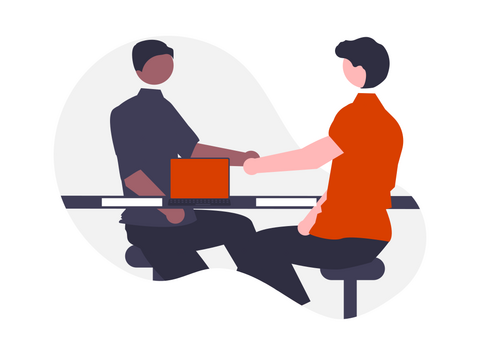Organizational Justice
Feeling fairly treated at work is extremely important. Employees who feel unfairly treated may experience a wide range of negative consequences, including insomnia and depression. They may also try to "get even" with their organization by engaging in retaliatory behaviors, such as theft and vandalism. However, ensuring fairness in the workplace can be very difficult, as it is an inherently subjective phenomenon.
Our research examines how employees determine what is (un)fair, including how fairness judgments can be influenced by social and contextual factors such as coworkers’ emotions, corporate social responsibility initiatives, and employees’ own past behavior. In addition, research in our lab examines when and why managers sometimes fail to treat their employees fairly and what organizations can do to overcome this tendency.
Ultimately, our research aims to advance our understanding of organizational justice from an employee perspective, which is critical for the development of organizational strategies and interventions aimed at enhancing fairness in the workplace and preventing negative outcomes associated with perceived unfairness.


Affect and Emotions
Emotions and other affective states play a central role in many of our research projects. We mostly focus on discrete emotions, such as anger, guilt, and shame, as emotions can influence employees' attitudes and motivate specific behaviors. Understanding emotions thus not only provides insight into employees’ subjective experiences in the workplace, but may also help predict work-related attitudes and behaviors.
Our past research has demonstrated, for instance, how specific emotions can influence employees’ justice-related values, prompt unethical workplace behavior, and motivate employees to help the victims of an ethical transgression. In addition, because emotions can be expressed, they also have the potential to be observed by other people (e.g., an individual's coworkers) and influence their behavior. Our research aims to answer questions related to when individuals infer information from their coworkers' emotions and how this information can shape their own behavior at work.
Morality
Many of our ongoing research projects are concerned with understanding (un)ethical workplace behavior. We believe that research in this domain is critical, given that unethical workplace behavior is very common and can be associated with severe negative outcomes for organizations and stakeholders.
Whereas others have often focused on the consequences of ethical misconduct for organizations (e.g., financial losses, damaged reputations), our research aims to advance our understanding of the consequences for individual employees and their social relationships at work. Examining these consequences is important for understanding employees’ experiences in the workplace, predicting their reactions to ethical misconduct, and developing organizational strategies aimed at facilitating recovery and preventing future violations in the aftermath of a transgression.
